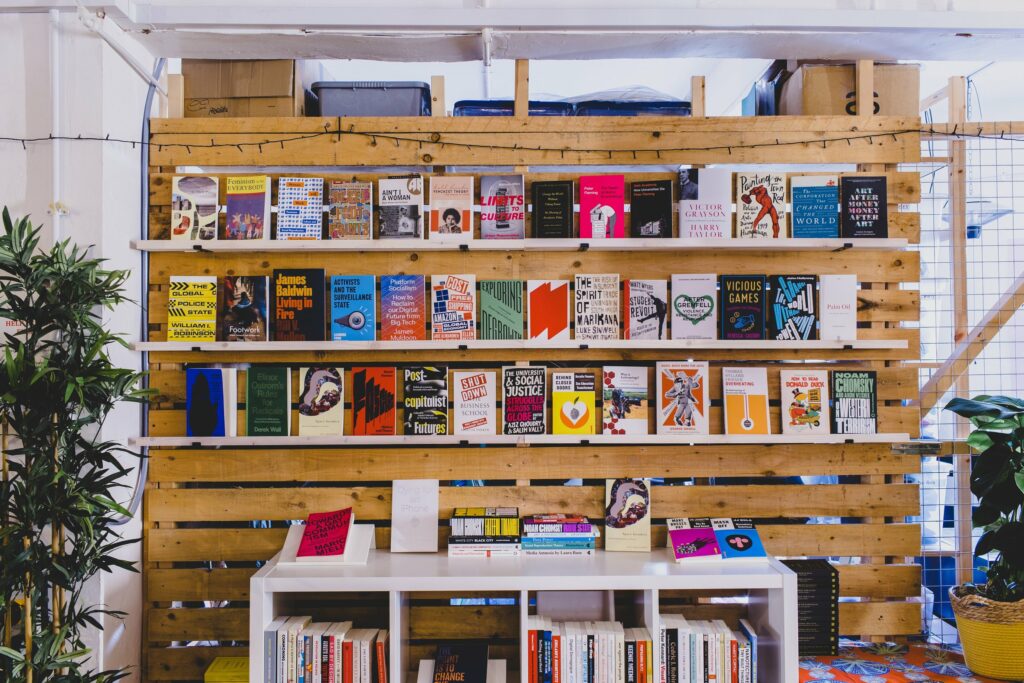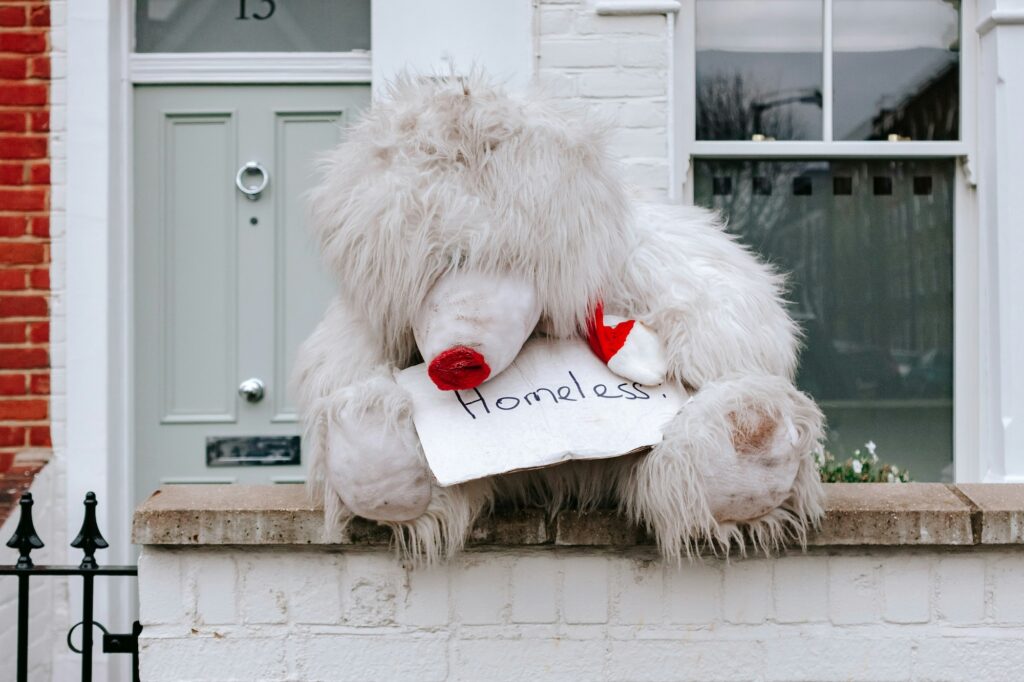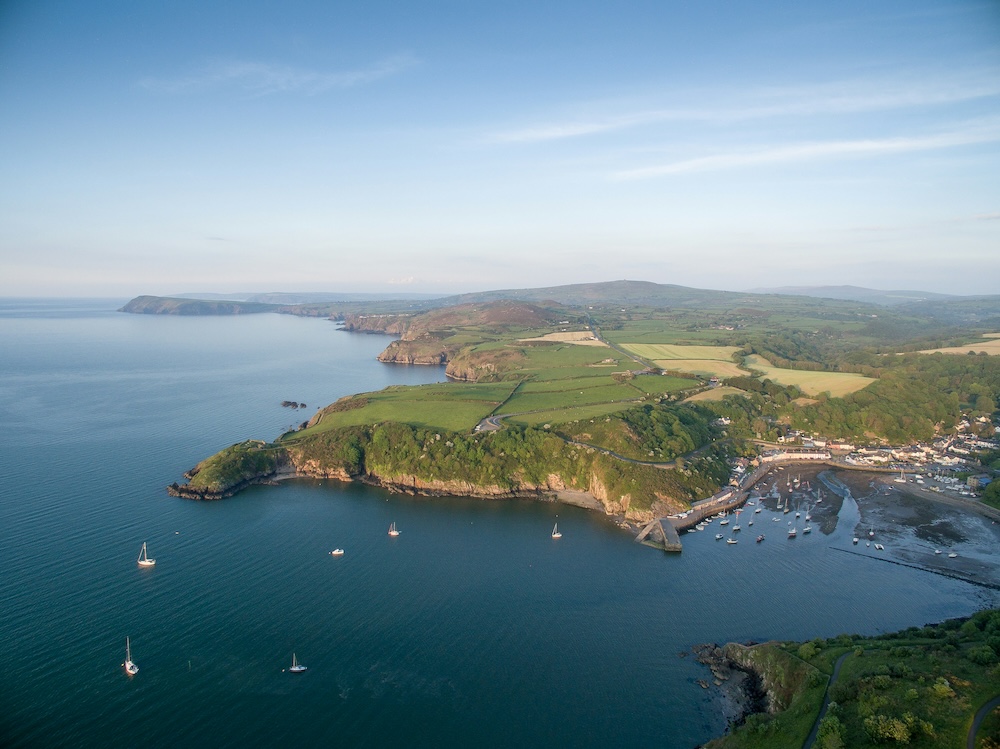Nirushan Sudarsan and Amira Hayat make the case for why they want a ‘Radical Reading Room’ in every pocket of Wales.
A strong and confident democracy involves everyone feeling angry but powerful in the knowledge that they can act within their communities for the better. This is the argument we want to put forward.
In our world today, a lot is happening that makes us lose hope. Across Wales, almost one in three children are in poverty with disparities of wealth for people in the working class and underrepresented backgrounds never seem to change. The acceleration of global heating and the decimation of biodiversity means that we will grow up in a hotter, more dangerous and less biodiverse world. Young people are exposed to war across the world, and this has become part of their day-to-day experience. In this world, it is hard enough to imagine a better, fairer and equitable world. Imagining a better world is hard work. If we can’t see a better world then we can’t talk about it and more importantly how to get there.
This is why we want a ‘Radical Reading Room’ in every pocket of Wales. It is an innovative approach to a tradition of reading rooms and collaborative experience which enables people to read, learn, listen and share ideas, opening up forums to debate local issues that have an impact on everyday lives. ‘Read, Debate, Organise’, to use the motto from the Left Book Club. The conversations are rooted in issues which are affecting our communities daily where we live, work and study.
If we can’t see a better world then we can’t talk about it and more importantly how to get there.
From inequality, the environment, precarious employment, migrant’s rights, structural racism and cultural democracy. We are also part of a national project set up by community spaces across the UK. We built a radical library in The Sustainable Studio, Cardiff, sourced by Pluto Press, and there are sister projects in Peterborough, Newcastle, Gateshead and Manchester. The first stage of the RRR was supported by Cardiff University, Pluto Press and Left Book Club. The reading room gives a space to meet authors and engage in dialogue with their ideas and provides resources and activities that hope to catalyse creativity, collaboration and conversation. The organisations involved share a common goal: to support each other and empower people within their communities. At its core, the Reading Rooms will help people find space to read, discuss and organise for a better future.
A radical history of reading rooms
From the establishment of the Left Book Club in 1936, there is a long history of reading groups in left wing and radical organising. In the 1920s and 30s, publisher Victor Gollancz founded the Left Book Club to contribute to the struggle against poverty, war and the rise of fascism. As he put it in an early brochure: ‘It is to help in the terrible urgent struggle for World Peace, and a better social and economic order and against fascism…’. The Left Book Club now forms as part of the partnership with the Reading Room across the UK.
Similarly, if you take a wander around St Fagan’s and visit the Oakdale Institute today, you will see that this building comprises the three main rooms downstairs: the reading room, the library and the committee room, and the main hall upstairs. During the 20th century, many miners utilised this space to educate themselves through reading, particularly during strikes. When the General Strike took place, the number of books borrowed increased by 100%.
Syniadau uchelgeisiol, awdurdodol a mentrus.
Ymunwch â ni i gyfrannu at wneud Cymru gwell.
The history of reading rooms has helped shape what we piloted as a space, but the Radical Reading Rooms have a distinctive link to contemporary society, reflecting issues in their own locations. Our concept acts as an opportunity to meet, discuss and work on local problems that we encounter every day. In our space, we work with people who have developed innovative and powerful ways to make change happen through their writing, research and activism. Its purpose is to generate authentic topical conversations and establish an inclusive, brave inter-generational space for critical and civic engagement.
So what is a Radical Reading Room?
Before we talk about how you can go and set this up in your communities, we thought it would be wise to address some common questions you might have reading this. One, it isn’t just a regular book club or reading room that might exist in places near you like in a cafe, pub, or community centre. As much as we all may enjoy going to these places for fun or even for some meaningful connection or conversation, this is different to those environments. Second, it isn’t just the same type or group of people coming together just to talk about the themes of a book or what’s on the news. Finally, it isn’t meant to be a safe space (we will address this later on).
Every Radical Reading Room is rooted in local communities, and it is shaped by them. From Cardiff to Newcastle, there is a collective purposeful vision behind them with their unique characteristics and set-up. This is because it is a crucial part of the Radical Reading Rooms to be able to reflect and connect to what takes place on our doorstep and to use what we learn from these sessions and spaces to have challenging conversations around them. What we are sharing today is based on our experience of creating one in Cardiff, which will hopefully help set up a framework and give an idea of what we are hoping to create, whilst ensuring it doesn’t become a duplicate of what we have already.
Gofod i drafod, dadlau, ac ymchwilio.
Cefnogwch brif felin drafod annibynnol Cymru.
A Radical Reading Room is an opportunity for people from different backgrounds with different experiences and stories who are actively supporting their own community’s self-determined levelling up, to build and share skills. To be empowered and to advocate for positive social change with a purposeful agenda.
In our case, with our first pilot, we were based in The Sustainable Studio and used this collaborative space as the location for people to come together. We also realised we wanted to make sure that the people involved were compensated for their time for this work and invest in the local people involved. We were successful in gaining funding from the Innovation for All funding from Cardiff University. The fund specifically supported collaborative and innovative community-led projects. Once we had a location and funding, we formed a steering group of people with varied interests, artists, academics, young people, community institutions etc. As this was youth-led and for future generations who had the drive, those who facilitated the Radical Reading Rooms and led them had lived experiences when discussing the issues involved.
Young people held conversations in their local community and talked to people about their own experiences based on their background, the areas they live in and some of the issues they faced to shape the discussion about what matters to people. Through our partnership with Pluto Press, young people from Llanrumney, Butetown, Grangetown and Riverside led the first phase of the Radical Reading Room and planned and delivered four events with authors Amelia Horgan (Lost in Work), Leah Cowan (Border Nation), Dave Randall (Sound System), and Arathi Sriprakash (Learning Whiteness).
In each of the Radical Reading Room events, young people with lived experience facilitated these events. For many, it was their first time doing so and for some, their first time reading a book outside of school and GCSE English. The event had local people, trade unions, community institutions, book club enthusiasts, artists, teachers, and residents to name a few. A room with different people who had their own experiences to share and each session touched on themes of the book and linked to policies and issues locally. We held a conversation with a young person as the facilitator and the author first, then we held a space for people to meet others in the room and engage with them on the themes and issues brought up. Finally, we held discussions on how we can address the issues involved and imagine a better future.
The Radical Reading Room is a brave space, which is meant to facilitate tension and have dialogue.
Remember we said it’s not a “safe space”. The Radical Reading Room is a brave space, which is meant to facilitate tension and have dialogue. It is brave to come and engage in this sometimes unfamiliar and uncomfortable dialogue and build the confidence to take part in this. More importantly, it enables people to learn, discuss and broaden their understanding of issues affecting people in their communities.
We learned a lot in our pilot, but here are some key takeaways. To let it be youth-led – young people are already leading many of the social justice movements across the globe, so this continues to build a whole generation of leaders in facilitating and holding a space that gives skills in building difficult dialogue. To do this, it requires some funding and resources to get this off the ground. The Books Council of Wales had the New Audiences Fund which is now closed, but perhaps something can re-open for projects like this for funders to support. It’s also important to invite a broad range of people, even if they have differentiating views – democracy is healthy when we can have dialogue. Additionally, finding a common community-led space for the library and books to be established so people can always come back and borrow for free is a great idea. Lastly, it’s important to engage topics and issues that are relevant in your context and locality.
There is no right way of doing this, but we wanted to share why and how a Radical Reading Room is something that should be common across Wales: spaces where people gather to imagine a better and more radical future, a Wales where we can have a growing network of proactive, civically engaged citizens and a Radical Reading Room expanding and happening in pockets of resistance across Wales.
All articles published on the welsh agenda are subject to IWA’s disclaimer. If you want to support our work tackling Wales’ key challenges, consider becoming a member.





